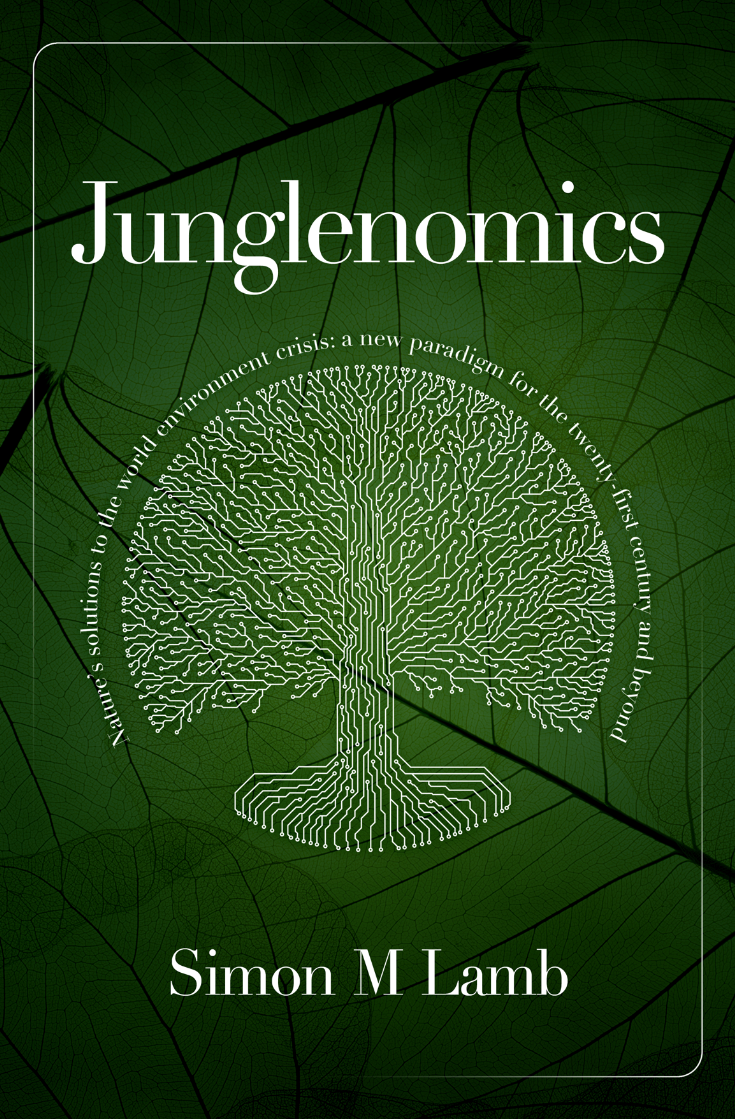reviewed by Chris Richards.
Junglenomics is a non-fiction text on Ecosystem Economics. For those with a fervent interest in correcting climate change, natural conservation on a global scale, or capitalism in a sustainable world this will contribute to your library. It is thorough and supports an ambitious but potentially attainable prospect for our future. Written by a Brit looking out from the UK to the rest of the world.
Junglenomics is a credible voice within a larger conversation about climate change, capitalism, and conservation. Faithfully and clearly considered initiatives are presented and weighed for future success in terms of environmental impact as well as economic implication. Finding the balance between rose-tinted idealism and cynical realism.
What makes this book readable is the matter-of-fact tone and steady pace. However, the relatable tone and comfortable walking pace make the text long. The central tenet of ‘profit motive drives both natural and economic colonisation’ is steeped in detailed context and continually reiterated. It requires stamina and dedication to read this book in its entirety in a timely manner. It is somewhere between science communication/journalism and technical reference text, so it is difficult to place in a category satisfactorily. It gives valuable information to the enthusiastic amateur and focuses different historical international schemes into one new plan.
In the light of the current pandemic, (this book was published a few months before the outbreak) many science communication programs from podcasts to articles, have been revisiting the causes and effects of previous pandemics. The initial cause is accepted as being the disturbance and destruction of ancient natural resources. Purely for financial benefit leading to nature’s need to adapt and survive. These vast and abstract concepts are broken down and made clear in this book. The infrastructure for change is, theoretically, in place. All that is needed to get started is investment. Money to be devoted to projects and speculation expectations placed on big business with a view to a more sustainable and evolved model – slowly moving away from dependence on finite fossil fuels. Idealism is recognised but gently modified by practicality and a healthy amount of cynicism. The plan needs to work and be profitable.
All is examined with the certain knowledge that if an advantage can be exploited, it will be. So, the advantages need to be as beneficial to nature as to commerce. The best influence this book could make is with the voting public, who go on to question their representatives as to what can be done to affect positive changes or support beneficial systems. Which frankly would be an amazing way forward.
Published by Orator Publishing and available now from Amazon and Simon Lamb’s website junglenomics.com

